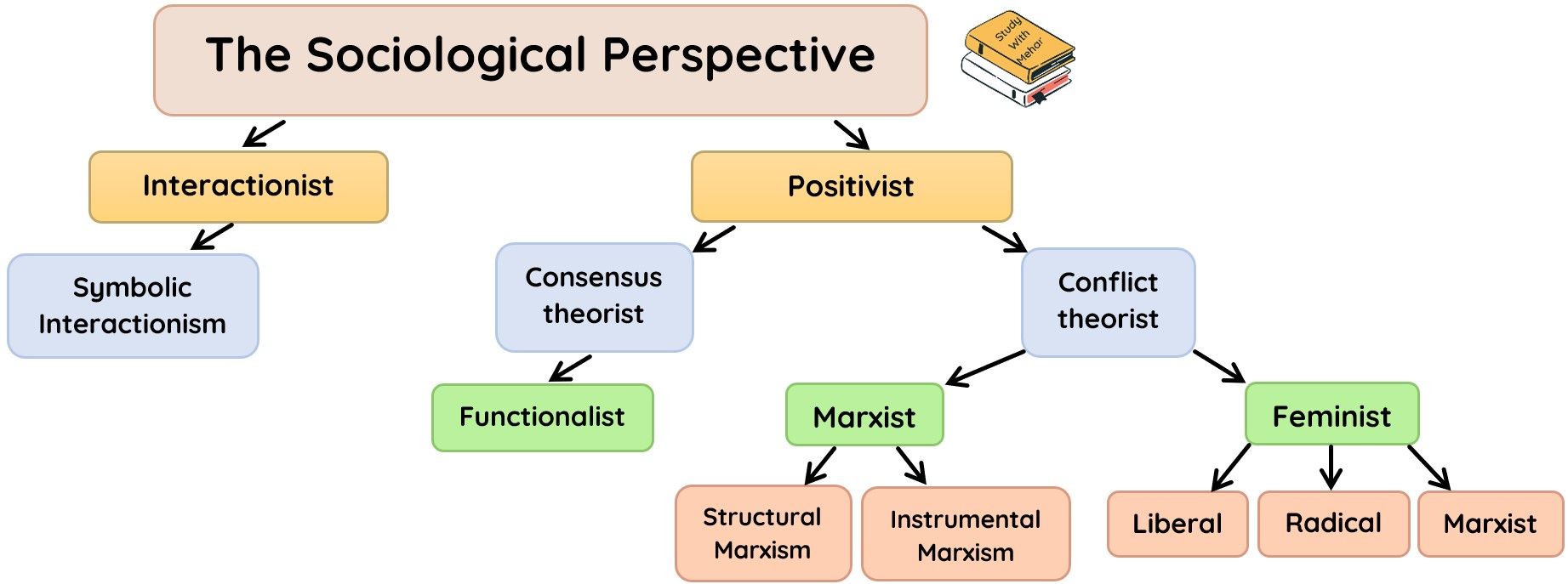Imagine a bustling city, filled with people rushing to work, buying groceries, and navigating the everyday grind. You might see this as a thriving community, but what if we zoomed out and saw the invisible forces at play, the struggles for power and ownership that shape every interaction? This is the lens through which Karl Marx, the revolutionary thinker, viewed society. His theories, though born in the 19th century, continue to resonate today, providing a framework for understanding the complexities of our social world.

Image: www.achieveriasclasses.com
Marx’s legacy, however, isn’t just an academic footnote. It’s a living, breathing force shaping modern political movements, labor rights battles, and the very fabric of how we understand inequality and oppression. His core concepts, like “class struggle,” “alienation,” and “capitalism,” have sparked debates and revolutions, prompting us to question the structures of our societies and empower us to seek change.
A World Divided: Unpacking Marx’s Class Struggle
At the heart of Marx’s theories lies the concept of class struggle, a never-ending battle between the bourgeoisie (the owners of the means of production) and the proletariat (the workers). He saw the capitalist system as inherently uneven, with the bourgeoisie exploiting the proletariat to accumulate wealth and power. This economic disparity, according to Marx, leads to alienation and oppression.
Think about it: the worker who builds a luxurious car doesn’t own it, the farmer who grows the food you eat doesn’t have access to it, the software developer who creates a revolutionary app doesn’t get a share of the profits. This, according to Marx, is the fundamental crisis of capitalism: the laborer is separated from the fruits of their toil, leading to a sense of alienation, a feeling of powerlessness and disconnection from one’s work and society.
Beyond the Factory Floor: Alienation in the Modern World
While Marx primarily focused on factory workers, the concept of alienation resonates across various facets of modern life. We see it in the gig economy, where workers are reduced to independent contractors, lacking the security and benefits of traditional employment. We see it in the digital age, where social media platforms commodify our attention, turning us into products for advertisers while offering little in return.
Marx believed that this alienation was not just a personal experience but a symptom of the capitalist system itself. It was a consequence of the commodification of everything, turning people, relationships, and even nature into objects to be bought and sold. This dehumanizing effect, according to Marx, leads to a false consciousness, where individuals are unaware of their true position within the system and fail to recognize their collective power.
From Revolution to Reform: The Legacy of Marx
Marx’s ideas haven’t gone unchallenged. Critics argue that his focus on revolution was overly radical, leading to authoritarian regimes that abused his theories for their own ends. However, Marx’s legacy is far more nuanced.
While the utopian vision of a communist society free from exploitation remains elusive, his ideas have fueled progressive movements advocating for workers’ rights, social justice, and economic equality. His critique of capitalism has inspired reforms aimed at reducing inequality, promoting labor protections, and ensuring fair wages.

Image: www.studywithmehar.com
The Enduring Impact: Understanding the Power Dynamics
Even if you don’t subscribe to his revolutionary ideology, understanding Marx’s theories provides a powerful tool for analyzing the world around us. His ideas encourage us to look beyond the surface of seemingly “natural” social structures and expose the underlying power dynamics that shape our lives.
Think about the globalization of trade, the rise of gig economy platforms, the ever-increasing wealth disparity – all these phenomena can be examined through the lens of Marx’s theories.
Moving Forward: Embracing Critical Thinking
Marx’s legacy is not about blindly following his doctrines; it’s about engaging in critical thinking and questioning the fundamental assumptions of the systems we live in. By embracing his ideas, we can become more aware of the forces that influence our lives, fostering a sense of agency and empowerment to challenge the status quo and work towards a more just and equitable society.
Karl Marx Theory Sociology
The Path Forward: Actionable Steps to Engage with Marx’s Legacy
- Explore further: Dive into Marx’s writings, such as “The Communist Manifesto” and “Capital,” to delve deeper into his theories.
- Challenge the assumptions: Consider how Marx’s ideas can help you understand the social and economic issues in your own community.
- Engage in dialogue: Share your insights, engage in discussions with others about Marx’s theories and their relevance today.
Beyond its academic significance, Karl Marx’s legacy urges us to recognize the human cost of economic systems, the power imbalances that permeate our societies, and the potential for a more equitable future. It’s a call to action, an invitation to think critically about the world around us and empower ourselves to shape a better world.






